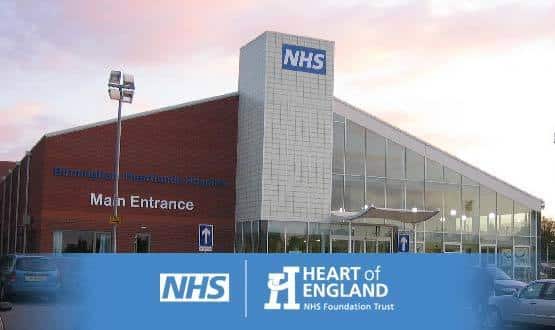Hospital stops record scanning
- 30 November 2015

A Birmingham hospital trust has halted plans to scan its entire library of paper patient records.
Heart of England NHS Foundation Trust has gone back to paper notes for clinicians during consultations due because of issues with the speed of accessing scanned records, said the trust’s chief clinical information officer Dr Matthew Rooney at EHI Live 2015.
The trust announced in January 2012 that it planned to scan all of its 1.7 million paper patient records by 2015 as part of a five year contract with EDM Group.
At the time, the Heart of England medical director, Dr Roger Stedman, said the move was part of the trust's push to improve patient safety as there were issues with clinicians having access to medical records during patient consultations.
In a statement to Digital Health News, Jonathan Rex, interim director of ICT at Heart of England said: “Due to an internal review, and changes in the leadership structure at Heart of England NHS Foundation Trust, the trust has taken the decision to re-evaluate certain projects; including the patient record scanning project.
He added: “The trust is undertaking a wholescale review of its IT infrastructure and strategy.”
During the session at EHI Live, Rooney said the trust intended to scan hundreds of thousands of medical notes and millions of images so clinicians could have a complete set of notes when seeing a patient.
However, he said that the delivery of information on a clinicians’ screen was “just far too slow” for this to work in practice. The front-end used to view the digital records is the trust's web-based iCare portal, which has been developed internally.
The trust has made other attempts to improve access to records, including the use of barcodes on paper records to make it easier to locate them.
Dr Afzal Chaudhry, chief clinical information officer at Cambridge University Hospitals NHS Foundation Trust was also at the session on clinical safety at EHI Live.
He said that his trust had also stopped scanning all paper records, suggesting that it would take 11 years to complete at the rate the trust was going.
He said it had found that for inpatient services, in 80% of cases clinicians weren’t even looking at the notes.
Cambridge University Hospitals stopped supplying legacy paper notes for inpatient services at the beginning of November, one year from going with live the Epic electronic patient record, although clinicians can still make requests to see specific notes.
The trust is also in the process of withdrawing paper notes from outpatients services, although around 40% of clinicians are still using these records, primarily those working in rare diseases.
Chaudhry said that the trust is working with clinicians so that the only scanned records are ones that are clinically meaningful. “The onus is on teams to go through notes and pull out what’s important.”




